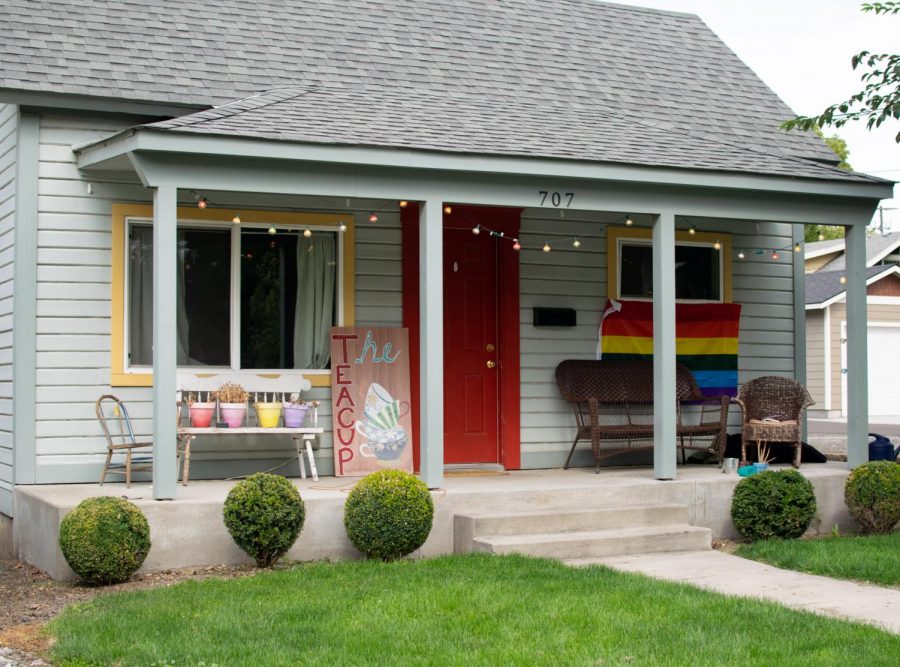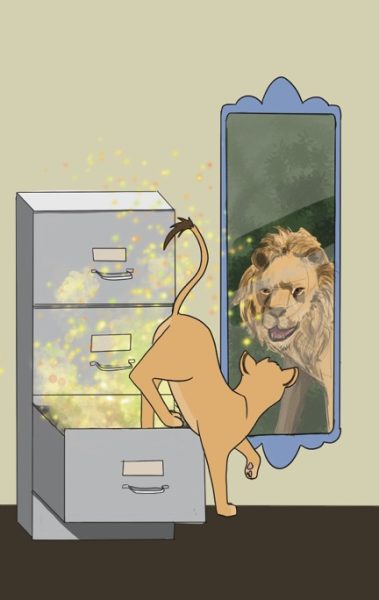Off-Campus Housing: Traditions of Community
September 26, 2019
With houses in short supply in the Walla Walla area, Whitman homes hold special value. Students are often unaware of the off-campus housing options available to them through the College.
After the first two years of required on-campus living, students are free to find homes in the Walla Walla community. This year, around 90 upperclass students are using the available Whitman-owned off-campus housing. All available rental units are currently full, and that’s generally the tradition, according to Julie Sovereign, the new trust coordinator in the Business Office. Sovereign is impressed with the available options so far.
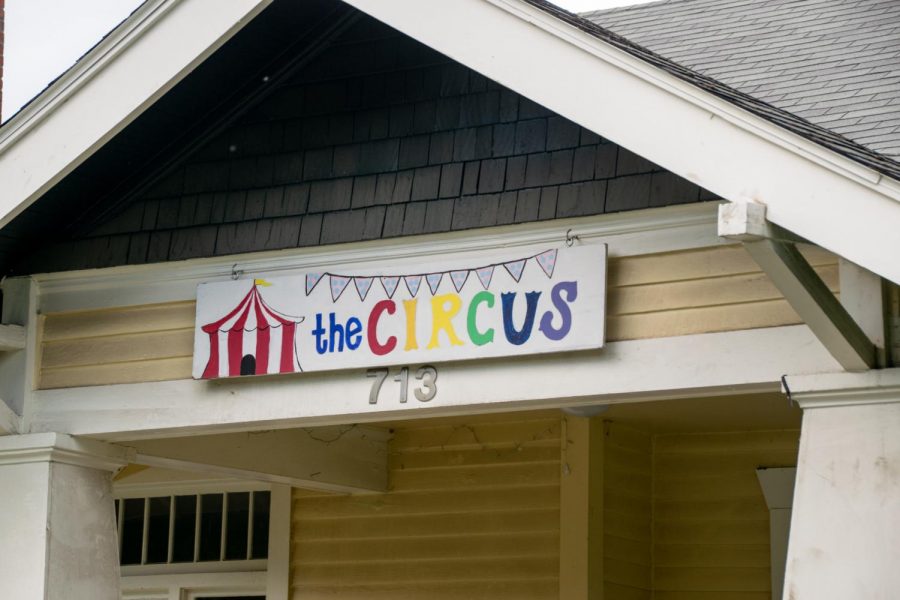
Colorful and creative signs can be seen across Isaacs Avenue showcasing names of off-campus houses.
“For being close to campus, I think the Whitman off-campus opportunities are, for lack of a better word, spectacular,” said Sovereign.
The selection process is based on a lottery, usually held in November or December, where students apply for as many houses as they are interested in based on availability. House sizes vary from studio apartments to six bedroom spaces.
“We want a safe environment for the students, we want to know they are taken care of and that they have a good, safe, hopefully maintenance-free, space to be in,” said Sovereign.
Part of caring for the rentals includes continued updating and maintenance, all done by Scott Townslee.
“They are pretty cognizant of making sure houses maintain their integrity and maintenance,” Sovereign said. “It’s an asset to them.”
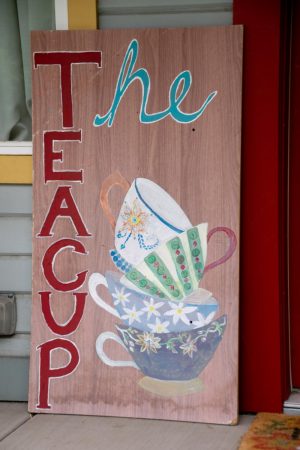
Presentation matters to the community — including administration and students.
“We are Whitman; we’re proud of who we are. We don’t want to look like we just crawled out of a gutter somewhere. We want to make sure that what we are presenting to our students is solid and sound and safe and looks good, but also that what we are presenting to the community is Whitman worthy,” said Sovereign.
On the student side, presentation often involves decorating and naming homes. Many of the famously named houses are not owned by Whitman, although some are. Students are usually familiar with places like the Playground, the Circus and the Teacup.
This tradition of naming houses, and representing that name with colorful signage, is not lost on the Business Office.
“It’s fun to see the different names and they are pretty proud of what’s up there,” said Sovereign, “I think it gives a sense of community and a sense of relationship building.”
Additional off-campus living is offered by Residence Life. College House is open to sophomores, juniors and seniors while Marcus House has space for 27 juniors and seniors. The Interest House Community is also available to all sophomores, juniors and seniors.
The myriad of housing options along with the care and community surrounding Whitman makes housing special.
“I’ve seen a lot of other off-campus homes, whether they are navigated through the school or private property management and these are clean, well-taken care of and loved,” said Sovereign. “I would send my kids there.”
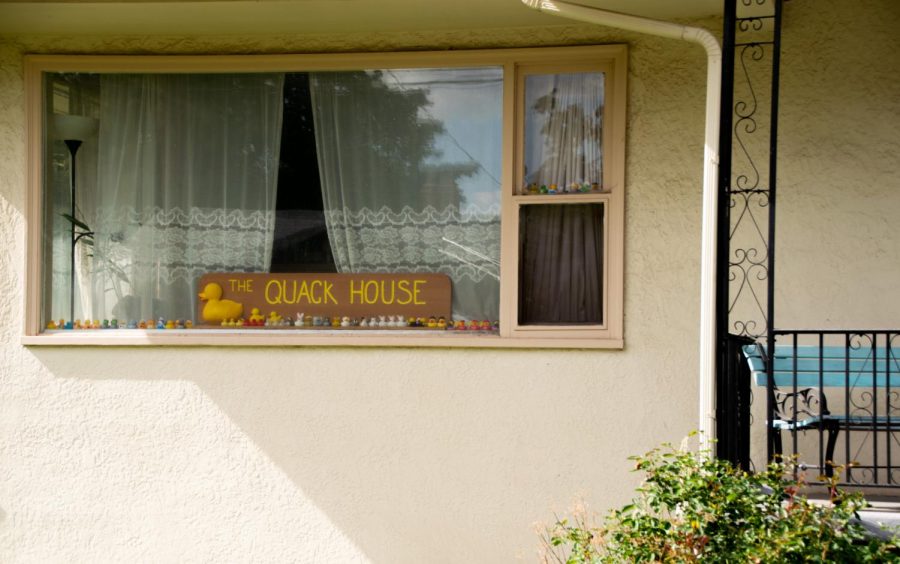
Creating Community in Off-Campus Houses
The student houses bordering campus are inhabited year after year by Whitman students. Many of these houses have a long history of Whitman students and have house names that are widely recognizable by many across campus.
Senior Chloe Carothers-Liske is currently living in an off-campus house known as the Crossing. This house is often highly sought after for its convenient location on Isaacs Avenue and the quality of the house.
In the case of the Crossing, Carothers-Liske said she has heard that the name came from a book that many Environmental-Humanities majors have to read their senior year with the same title.
Carothers-Liske and her housemates had never considered living in the Crossing until last year, but her connection to the house reaches back to her first weekend of her first year.
“The first time I ever went there was the first day that I came to Whitman, because my Scramble leader lived there and so we stayed at that house when I was a Scrambler,” said Carothers-Liske.
Upon this first encounter with the house, she remembers thinking that the house was conveniently located and of nice quality.
For many, the rush to find an off-campus house can be stressful or confusing as groups of friends rush to look for a house that fits their needs and budget. Some houses tend to be passed down through lines of friends. In Carothers-Liske’s case, she simply contacted the landlord to see if there was an opening.
Each year, members of the Crossing host an annual party known as “indie formal” on an early weekend in the fall. Upon moving into the house, Carothers-Liske felt that it is sort of an implied party house.
“As the seniors on the frisbee team and the only upperclassmen living in a house that could even be remotely useful as a party house, we knew we’re gonna probably have to throw frisbee parties and stuff. So we already had that understanding of coming in that we would have to throw parties,” Carothers-Liske said.
As a house that hosts many parties, Carothers-Liske expressed that she and her housemates hope to make it a space that all are welcome in. She believes that in some ways, despite what some might assume, off-campus houses can be a place where community can be created.
“Well I know Whitman is trying to move towards not having off-campus housing for juniors and seniors and they say it decreases a sense of community and connectedness of students off-campus. I think that’s definitely true depending on where your house is located,” said Carothers-Liske.
From her experience living farther off-campus during junior year, and then living on Isaacs currently, she feels that she can see how off-campus housing can both isolate and connect students.
“Last year, I lived a lot farther off of campus and in an area where there were less Whitman student houses and so I did feel a little bit isolated and separated from campus which is good and bad. It was nice to have that now I’m at school, now I’m at home kind of thing, but it could also be its harder to see my friends because they live farther away,” she said. “But now I think if you live on Isaacs it feels like you still live on campus because basically all the houses on Isaacs are rented to Whitman students, so there’s that sense of community that’s still there. It feels like that street and that section are just an extension of campus,” she said.
Senior Kate Dolan who lives in the off-campus house known as the Rainbow agrees that while she has experienced living off-campus as an opportunity to create a tight-knit community, it can vary based on experience.
“I think it depends if you live close to campus or far away. I live on a street with a lot of Whitman students so I still see people walking to class,” Dolan said. “Being forced to live in a dorm environment, even though it does foster bonding, by the time you are a senior you likely know yourself well to determine if you want to live in a big house or small house and can create community where you live.”
“It just requires more energy to foster a community, but that community might be strong,” she added.
Effects of Off-Campus Housing on the Walla Walla Community
While Whitman off-campus houses remain at an affordable price for many students, housing around the greater Walla Walla community is becoming more and more unaffordable. However, there is work being done around this to solve this issue.
The Walla Walla Community Council is a non-profit organization that brings community members together to look at current issues in the region and propose recommendations. This year, they chose to study affordable housing as it is a significant issue in the region.
“There is a serious lack of affordable housing in our region,” Catherine Veniga, Community Council Study Coordinator said. “41 percent of households who rent or pay a mortgage do not live in housing that is affordable.”
A large chunk of the population that doesn’t have affordable housing includes folks who live in Walla Walla county, Columbia county and Milton-Freewater. These people spend 30 percent or more of their income on housing costs such as rent, mortgage and utilities.
Part of the reason for this, according to Veniga, is a housing mismatch. She says there are lots of three-bedroom homes, but not lots of three-person households. Similarly, there are lots of single person households, but not a lot of single or studio apartments.
In relation to off-campus housing, Whitman students renting non-Whitman housing actually seems to be a good thing for the town. According to Veniga, though there is a general sentiment in town that college students are gobbling up units, she doesn’t think that’s true.
“Students actually have a niche impact on the market and tend to take units that are not really desirable for other types of households,” Veniga said. “The study did not investigate the impact of the student population on housing costs, nor the impact of the lack of affordable housing on students.”
Veniga says that people from town generate rent from students. She also commented on the fact that Whitman does own a lot of houses and rents them out to students and faculty. Whitman is a sizable landlord in Walla Walla and “landlords provide housing.”
Whether or not off-campus students choose to live in non-Whitman owned or Whitman-owned housing, they live within a community and housing economy of Walla Walla with good options for affordable housing.
To get involved with the local community and work with issues having to do with housing that impacts the larger Walla Walla community, students can join a community council working group that is trying to create a community land trust. Out of the 28 recommendations that came out from the study conducted by the community council, one of them was to create a community land trust because the value of land has skyrocketed much faster than the price of the homes themselves. It is a way to separate prices of land from the prices of homes.
Community council is welcoming students who want to help out with the process. They meet on the second and fourth Tuesday of each month.



